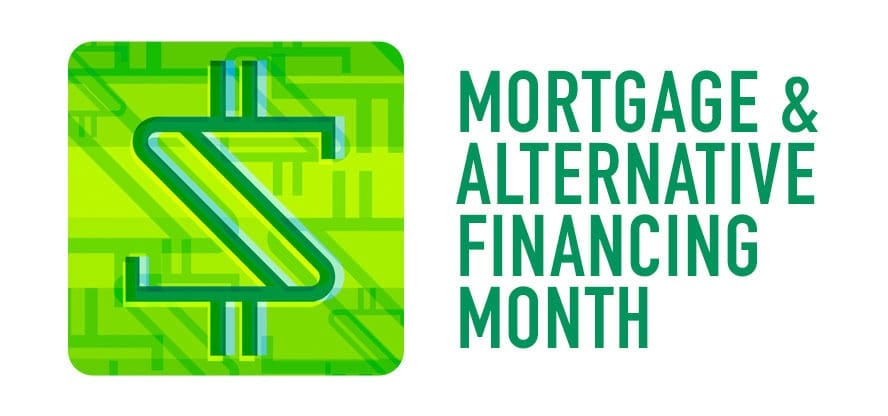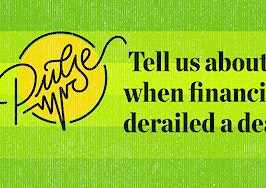This month, we’ll talk to mortgage leaders about where the market is headed and how products are evolving digitally to suit buyers’ needs now. We’ll also explore emerging alternative financing options that are changing the game for buyers and sellers. Join us for Mortgage and Alternative Financing Month.
To millions of Americans, trading a nine-to-five paycheck for a home office deduction and a business of their own is today’s definition of the American dream. The greatest percentage of American adults in 60 years, one out of eight are self-employed, including most real estate agents.
According to the IRS, you are self-employed if you are a sole proprietor or an independent contractor or are otherwise in business for yourself (including a part-time business). If you are a member of a partnership or own 25 percent or more of any business entity, you are self-employed.
Self-employment has advantages, notably the home office deduction and eliminating commuting time and expense. Getting a mortgage to buy or refinance, however, is not one of them. For traditionally employed workers, lenders require copies of recent Wage and Tax Statements (W-2) and employment verification from an employer.
Discretion and doubt
To verify employment for self-employed workers, lenders typically require at least two years of steady self-employment verified by tax returns and bank statements.
As a result of the layoffs, furloughs and general economic uncertainty created by the pandemic, Fannie Mae and Freddie Mac have stiffened requirements for self-employed borrowers. Now self-employed borrowers must provide:
- An unaudited year-to-date profit and loss statement including the recent month.
- Business bank account statements representing the final two months of the profit and loss statement.
- Personal asset account statements if you do not have a separate business account.
Or:
- An audited year-to-date profit and loss statement reporting business revenue including the most recent month.
- Two years of tax returns.
- At least two years of your businesses’ profit and loss statements.
- Business bank statements for the latest three months for the profit and loss statement. (In December, Fannie Mae increased statement requirements from two to three months.)
Even borrowers who jump through these new hoops may not get approved. Most lenders will err on the side of caution and reject an application if they have any doubt about a borrower’s ability to repay.
“Lenders have a clear memory of being second-guessed in days gone by and required to buy back what lenders believed to be responsibly underwritten mortgages. On top of all that, the additional time, underwriting cost, and loan file anguish are motivating many lenders to raise the bar on self-employed borrowers,” Jeff Lazerson wrote in an Orange County Register article published Dec. 3, 2020.
5 tips that address the new rules
1. Make time to improve your credit score and pay down debt
Scores don’t improve overnight. You might need six to 12 months to get your credit in the best shape you can. Do all you can to pay down your debt. Pay off credit cards, pay bills on time and live on a cash basis.
Perhaps the most important metric to a lender will be your debt-to-income ratio.
2. Find a lender experienced with self-employed borrowers
You can waste precious months working with a lender whose underwriters are unfamiliar and uninterested in working with self-employed borrowers. Many lenders raise the bar on self-employed borrowers in light of the additional time, underwriting costs and effort.
Some lenders add charges for self-employment loans in the form of points. Others may require FICO scores as high as 780 or may not do your mortgage unless you are an existing client.
Do some legwork, and find one who welcomes self-employed borrowers and has experience. Ask about their underwriting process and policies. Find out exactly what documentation they will need from you and make a list.
3. Get your documentation together
You will need more documentation than a nine-to-five worker to show that you will earn enough to make mortgage payments.
Bear in mind that you are applying in the middle of a pandemic when millions of people are out of work and millions of small businesses are struggling. You will need to go the extra mile to document your income convincingly with bank statements, profit and loss statements, and tax documents.
Self-employed borrowers tend to use as many business expenses as allowed to reduce taxable income on tax returns. Lenders may wonder if you can afford a mortgage. With your tax returns, provide detailed profit and loss statements to show what you really made.
Provide projections for the current year. Show a track record of successful self-employment. Provide profit and loss statements that are accurate and convincing. Show progress and how you overcame adversity during the pandemic.
Large cash reserves can help to soothe some lenders by showing that you will be able to weather downturns in your business cycle without missing mortgage payments.
Consider including a list of debts and monthly payments, a list of all assets (savings accounts, investment accounts, etc.), additional sources of income such as alimony and Social Security, and proof of your business or employment (business license, letters from clients, the statement from your accountant).
4. Review documentation with your accountant before you apply
Your accountant can check to see if your documentation is accurate and thorough, and may suggest improvements.
5. If all else fails, consider alternative loans
“No-doc” loans requiring little or no income documentation still exist, but they are not the loans responsible for the bubble 20 years ago. Their mortgage rates are as much as 3 percentage points higher than conventional loans, and they require higher credit scores and down payment requirements. Minimum credit score requirements are around 700. They also might require a down payment equal to 30 percent of the home’s value.
FHA, VA, down payment assistance programs and GSEs all offer alternatives to conventional mortgages. Some are available only to first-time buyers, but they all involve government guarantees that reduce lenders’ risk and are worth checking out.
As the pandemic eases in the future, be sure to check to see if Fannie and Freddie have relaxed their requirements for self-employed borrowers.
Steve Cook edits The Down Payment Report for Down Payment Resource and writes for leading real estate blogs and news outlets. He has been vice president of public affairs at the National Association of Realtors, a broadcast news correspondent, Congressional press secretary, and top executive for an international public relations firm.














